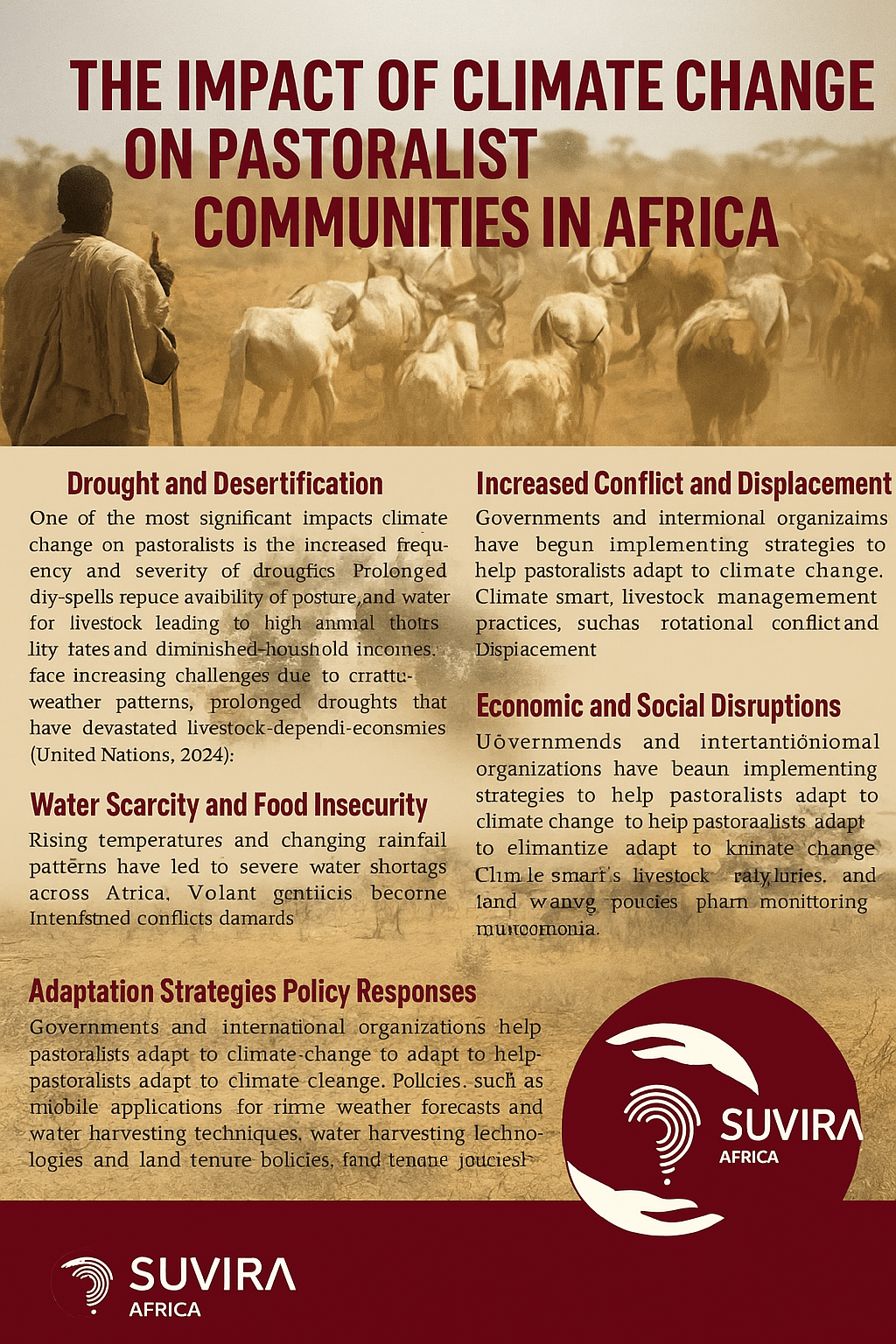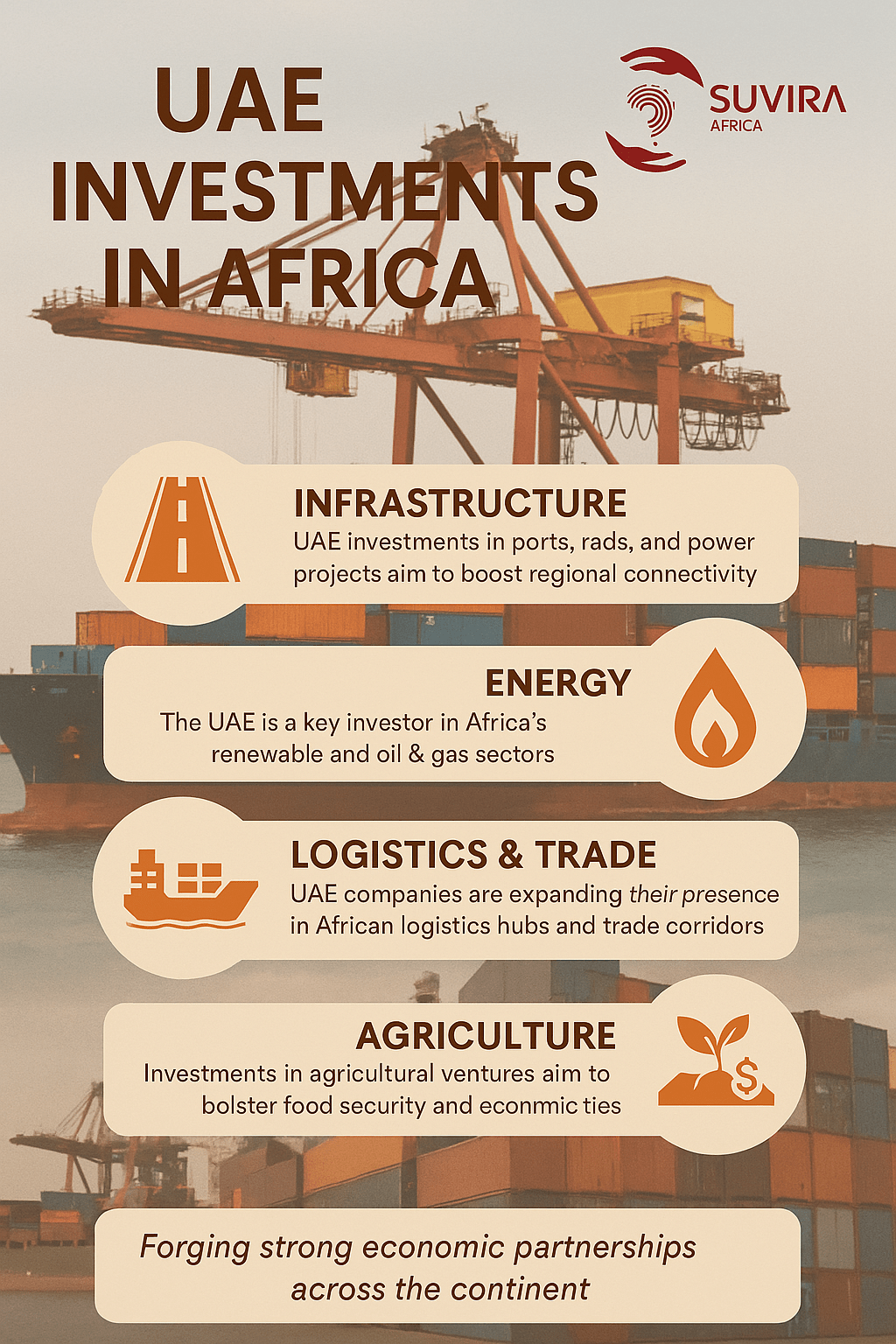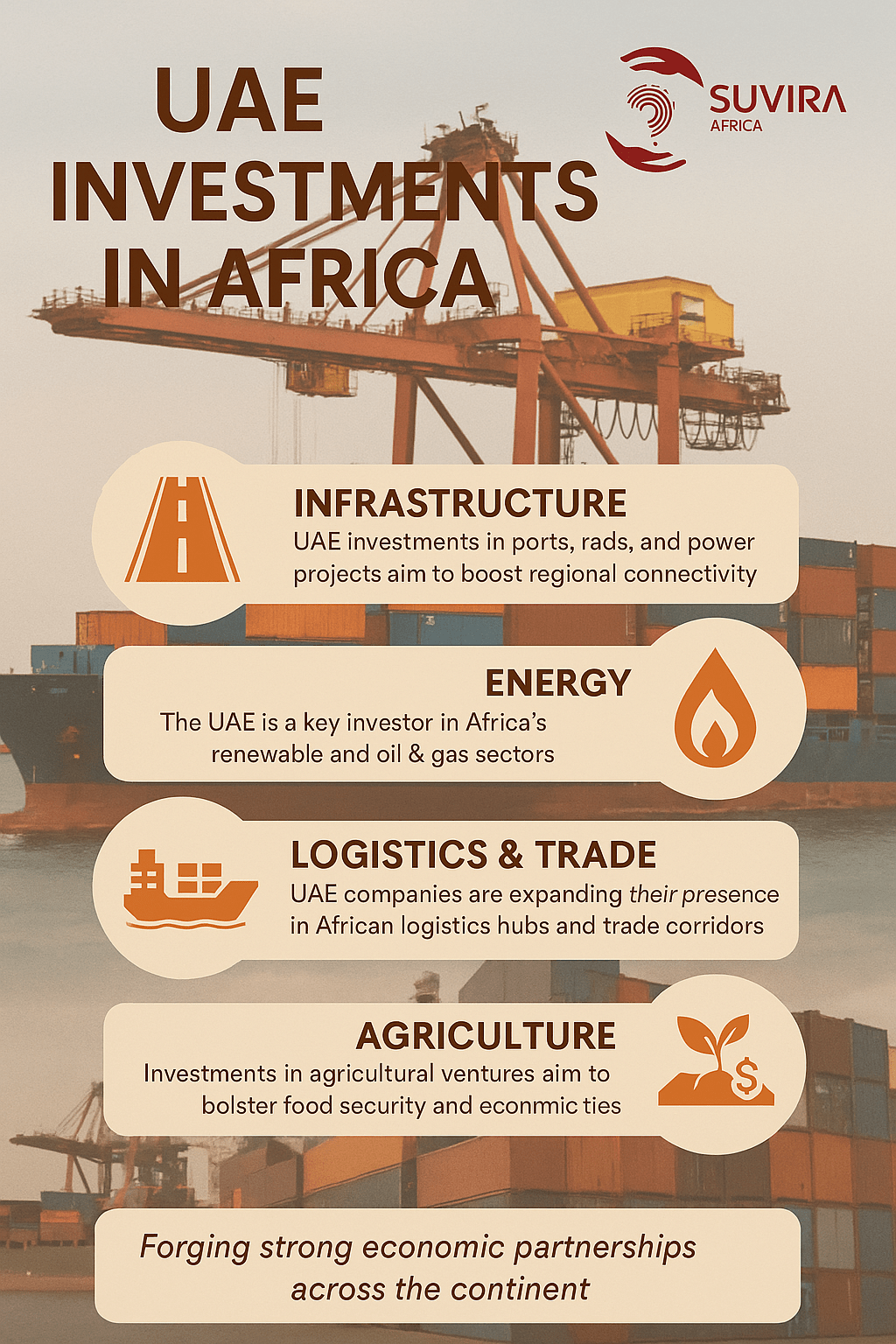The Climate Crisis is Uprooting Africa’s Pastoralist Way of Life
October 18, 2025 4 mins to read
by Leon Lidigu
Across Africa, climate change is no longer a looming threat—it is a lived reality, especially for pastoralist communities. These groups, who have long depended on seasonal rainfall, livestock rearing, and access to grazing lands, now face mounting challenges as the climate grows more unpredictable and unforgiving (IPCC, 2022; FAO, 2021).
In regions like the Sahel and the Horn of Africa, the once-reliable rhythm of nature has been disrupted by prolonged droughts and erratic rainfall. Countries such as Niger, Mali, and Chad are experiencing recurring dry spells that leave pastures barren and water sources depleted.
Starving herds and shrinking incomes are deepening cycles of poverty (World Bank, 2022). In Kenya, Somalia, and Ethiopia, repeated failed rainy seasons have crippled pastoral economies, pushing entire communities toward food insecurity (UNOCHA, 2022).
Beyond the environmental challenges, social tensions are escalating. As grazing lands dwindle and water becomes scarcer, violent clashes between herders and farmers have increased. In Nigeria, such conflicts have led to loss of life and large-scale displacement (International Crisis Group, 2021). Similar struggles are unfolding in Sudan and South Sudan, where resource competition exacerbates long-standing ethnic and political divisions (IDMC, 2023).
The economic impact is just as devastating. Livestock is more than a source of income; it is the cornerstone of healthcare, education, and social stability for pastoralist families (FAO, 2021). When animals die, families lose their financial backbone.
In response, many are leaving behind their traditional livelihoods and migrating to urban centers in search of alternative incomes—often menial and unstable. This migration also risks eroding centuries of indigenous knowledge, cultural practices, and language (UNESCO, 2022).
Still, there is reason for cautious optimism. Governments and development partners are promoting climate-smart practices such as rotational grazing and drought-tolerant fodder (ILRI, 2022).
Water harvesting techniques, including boreholes and small reservoirs, are being implemented to secure water supplies. Legal reforms on land rights are also being explored to safeguard pastoralist access to vital grazing areas (FAO, 2021).
Technology is playing a key role in this adaptation. Mobile apps now deliver real-time weather forecasts and early warning alerts to help herders make informed decisions. In Kenya and Ethiopia, digital livestock tracking systems are being used to reduce stray herds and monitor movements—helping to prevent disputes and improve planning (World Bank, 2022).
However, adaptation alone is not enough. True resilience requires long-term investment and inclusive policy development. Climate justice must be central to these efforts—recognizing that those who contributed least to the climate crisis, like Africa's pastoralists, should not bear its harshest consequences (UNEP, 2021). International cooperation, community-led solutions, and policies that blend tradition with innovation are essential.
Africa's pastoralist communities have shown resilience for generations. With the right support and sustained commitment, they can continue to adapt—and thrive—in the face of a changing climate.
References
1. FAO. (2021). Pastoralism and climate change: Enabling adaptive capacity. Food and Agriculture Organization. https://www.fao.org
2. IDMC. (2023). Global report on internal displacement 2023. Internal Displacement Monitoring Centre. https://www.internal-displacement.org
3. ILRI. (2022). Climate-smart livestock solutions for pastoral communities. International Livestock Research Institute. https://www.ilri.org
4. International Crisis Group. (2021). Herders against farmers: Nigeria's expanding deadly conflict. https://www.crisisgroup.org
5. IPCC. (2022). Climate change 2022: Impacts, adaptation and vulnerability. Intergovernmental Panel on Climate Change. https://www.ipcc.ch
6. UNEP. (2021). Making peace with nature: A scientific blueprint to tackle the climate, biodiversity and pollution emergencies. United Nations Environment Programme. https://www.unep.org
7. UNESCO. (2022). Safeguarding pastoralist cultures and indigenous knowledge systems. United Nations Educational, Scientific and Cultural Organization. https://www.unesco.org
8. UNOCHA. (2022). Horn of Africa drought crisis. United Nations Office for the Coordination of Humanitarian Affairs. https://www.unocha.org
9. World Bank. (2022). Building resilience in pastoralist communities. https://www.worldbank



